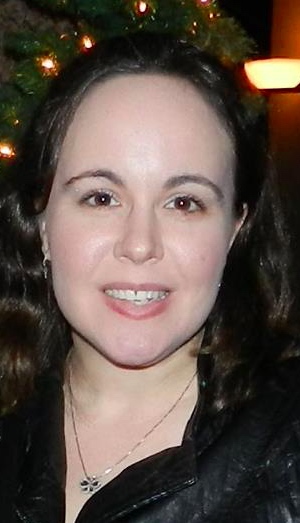ISSN: 1941-4137
POETRY THAT ENACTS THE ARTISTIC AND CREATIVE PURITY OF GLASS
POETRY THAT ENACTS THE ARTISTIC AND CREATIVE PURITY OF GLASS

Liz Marlow’s poems appear or are forthcoming in The Bitter Oleander, B O D Y, The Carolina Quarterly, Permafrost Magazine, and elsewhere.
Shayna Rubinowicz Sees Chaim Rumkowski, Judenälteste1 of the Łódź Ghetto, for the First Time, February 1941
Sometimes I dream of candy,
trying to remember holding,
tasting plums and cherries.
Now they are words without flavor:
plum, cherry.
Plum reminds me of plume.
A young girl wearing a coat
with a collar of feathers walks by.
How long will it take
for feathers to fall out
as though she is a bird
molting after breeding
season rather than from dirty air
and constant darkness?
Plume reminds me of plum.
Her cheeks are no longer plump
like plums; her eyes are sunken
like overripe cherries from hunger.
Cherry reminds me of chéri.
She walks up to Rumkowski.
It is hard to tell where his hair begins
and her collar ends as he whispers,
burying his face into her
feathers like a roosting bird
while placing a red candy
in the middle of her open palm.
1: “Judenälteste” means “Chief Elder of the Jews” in German.
This poem is about one of the most controversial figures of the Holocaust, Chaim Rumkowski. As Judenälteste of the Łódź Ghetto, he is most famous for his speech asking Jews in the ghetto to give up all children below the age of ten for "resettlement" even though he knew that the children would go to a concentration camp. While other ghettos had leaders who either protested (and died doing so) or minimally cooperated with the Nazis, Rumkowski believed that by collaborating, he was saving more lives. He was also known for sexually assaulting women and children despite his impotency. Survivors also documented that he exchanged sexual encounters for food, particularly candy until it was no longer available in the ghetto.
Glass: A Journal of Poetry is published monthly by Glass Poetry Press.
All contents © the author.
All contents © the author.





